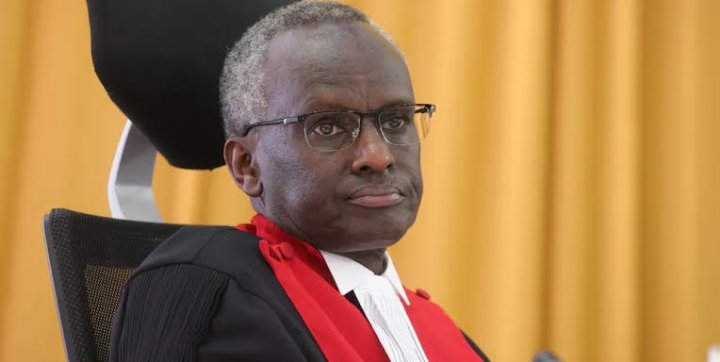Supreme Court Judge Justice Isaac Lenaola has been implicated in a controversial property transfer scandal involving the estate of the late former assistant minister John Keen.
Allegations have surfaced that Lenaola, alongside Keen’s daughters, Rosemary Sanau Keen and Pamela Soila Keen, fraudulently transferred 43 immovable properties worth Sh1.48 billion and withdrew Sh89 million from various bank accounts belonging to the deceased.
The case was filed by Victoria Naishorua Keen, Keen’s firstborn daughter, through Senior Counsel Philip Murgor.
According to the reports we’ve verified, Naishorua claims that even after the filing of a Petition for Probate of Keen’s Written Will in February 2017, the defendants Justice Lenaola, Sanau, Soila, and the late lawyer Maina Wachira transferred properties and withdrew funds while court applications were still pending from other beneficiaries seeking reasonable provisions.
A big part of the allegations is that a prime property in Nairobi’s affluent Karen suburb, valued at Sh45 million, was transferred on December 14, 2016, just 11 days before Keen’s death on December 25, 2016.
Naishorua, through her legal team, contends that at the time of signing the transfer documents, Keen was critically ill and unlikely to have comprehended the contents of such a complex legal document.
According to Murgor, “On the said 14th December, 2016, when the Deceased purportedly signed the said Transfer, he was extremely ill and literally on his death bed, and therefore could not have known or appreciated the contents of the complex legal document that he was appending his signature to, if indeed the signed transfer/signature of the Deceased is authentic.”
Murgor also accused Lenaola of unprofessional conduct, stating that he should have waited for the issuance of a Confirmation of the Grant by the court before proceeding with the transfer.
The case further alleges that the signatures on Keen’s Last Will and Testament, dated December 2, 2015, were forged.
Forensic analysis conducted by Spectral Forensic Services confirmed that the signatures on several key documents, including the will, were indeed forgeries.
The transfer of Keen’s property was lodged for registration on January 18, 2017, just 24 days after Keen’s death, and before a Petition for Grant of Probate had been confirmed.
This action, according to Murgor, amounted to the criminal offence of intermeddling, a violation under Section 45 of the Law of Succession Act.
Murgor emphasized that the transfer represented gross misconduct by the parties involved, especially Justice Lenaola, who as a Supreme Court judge, holds a position that requires the highest levels of integrity and impartiality.
Further complicating matters, Murgor argued that Keen, despite being friends with Lenaola, would not have entrusted him with his estate due to a personal conflict.
Allegedly, Lenaola and Rosemary Sanau developed a close relationship, which caused Keen distress, leading to doubts about his willingness to appoint Lenaola as an executor of his estate.
The case brings to light deep divisions within the Keen family, particularly surrounding the vast estate and the polygamous nature of Keen’s household.
The handling of the estate has become a source of conflict, with Naishorua’s lawsuit underscoring the existing tensions among Keen’s 14 children from different wives.
The case will likely raise questions about ethical standards, trust, and the impartiality required from individuals handling high-profile estates.
Murgor is pushing for the court to take action against those involved, accusing them of manipulating Keen’s final wishes for personal gain, while also questioning the integrity of the legal professionals implicated.
The outcome of this case will have far-reaching implications for the Keen estate and the reputations of those involved.





















Add Comment